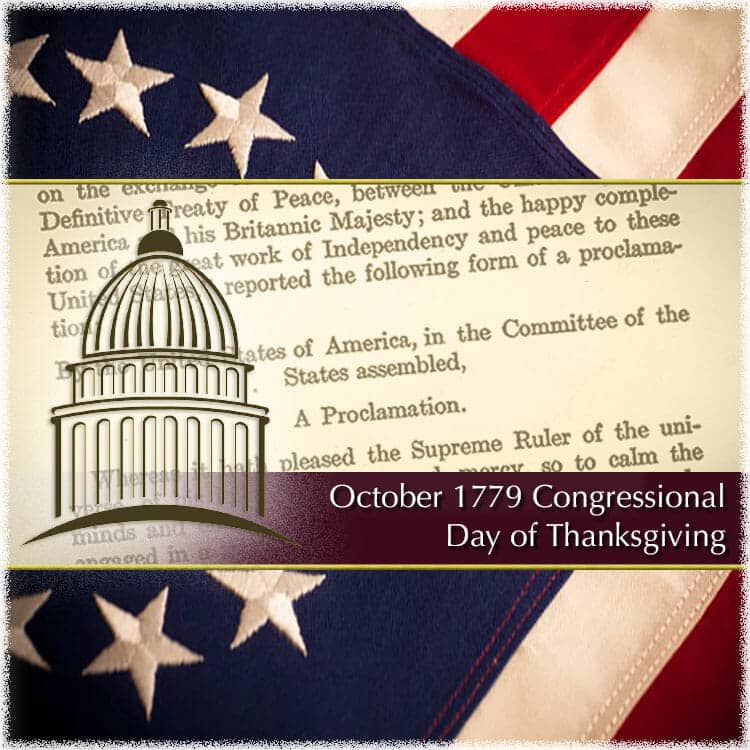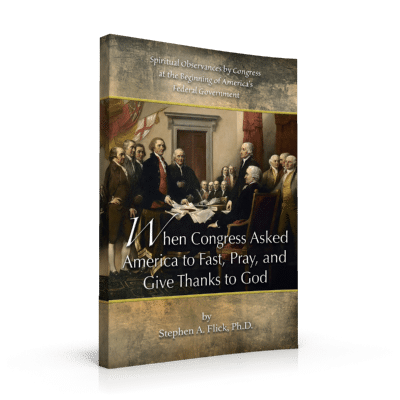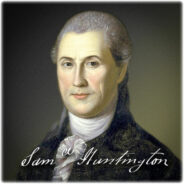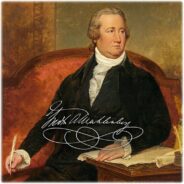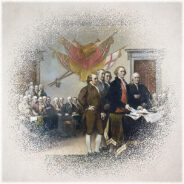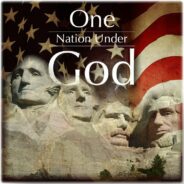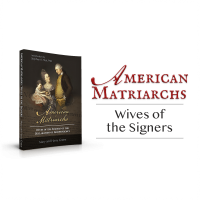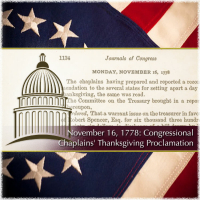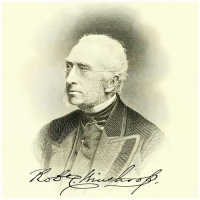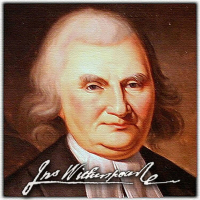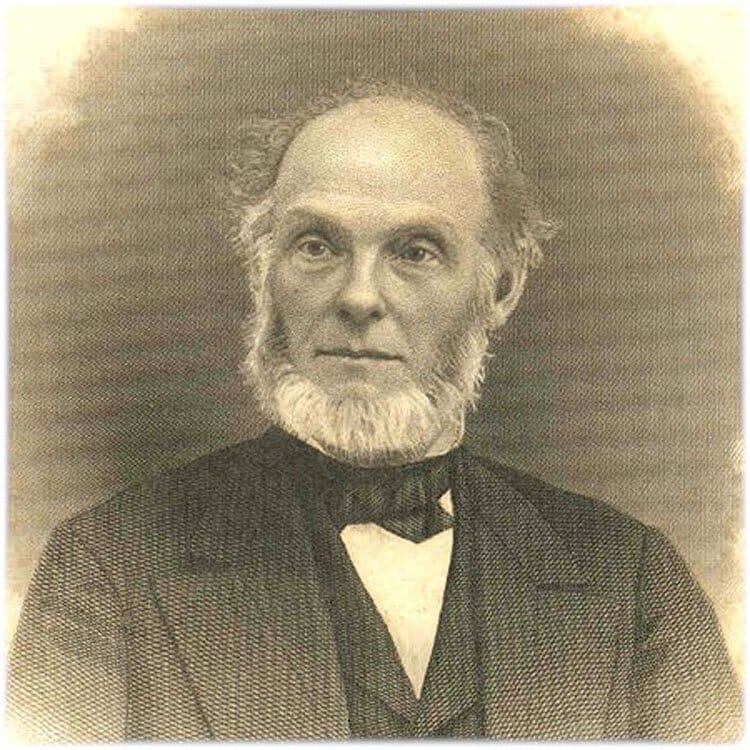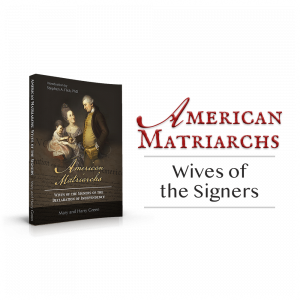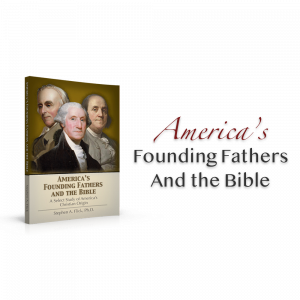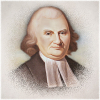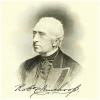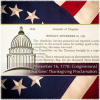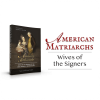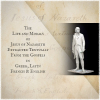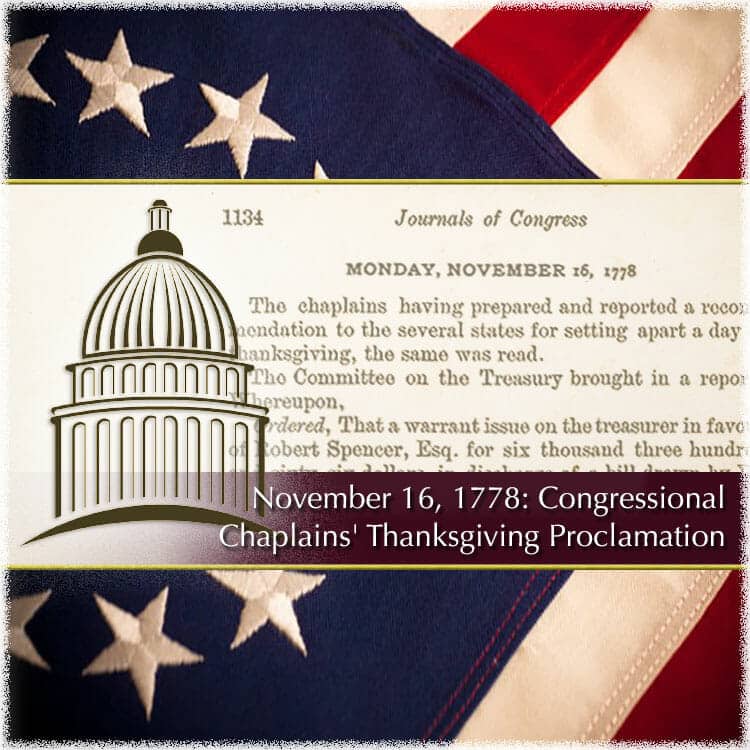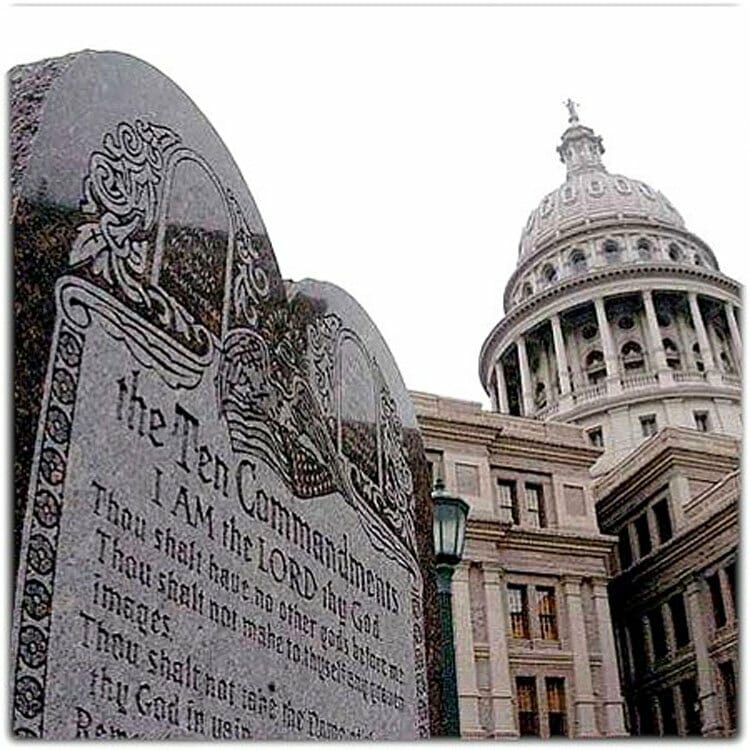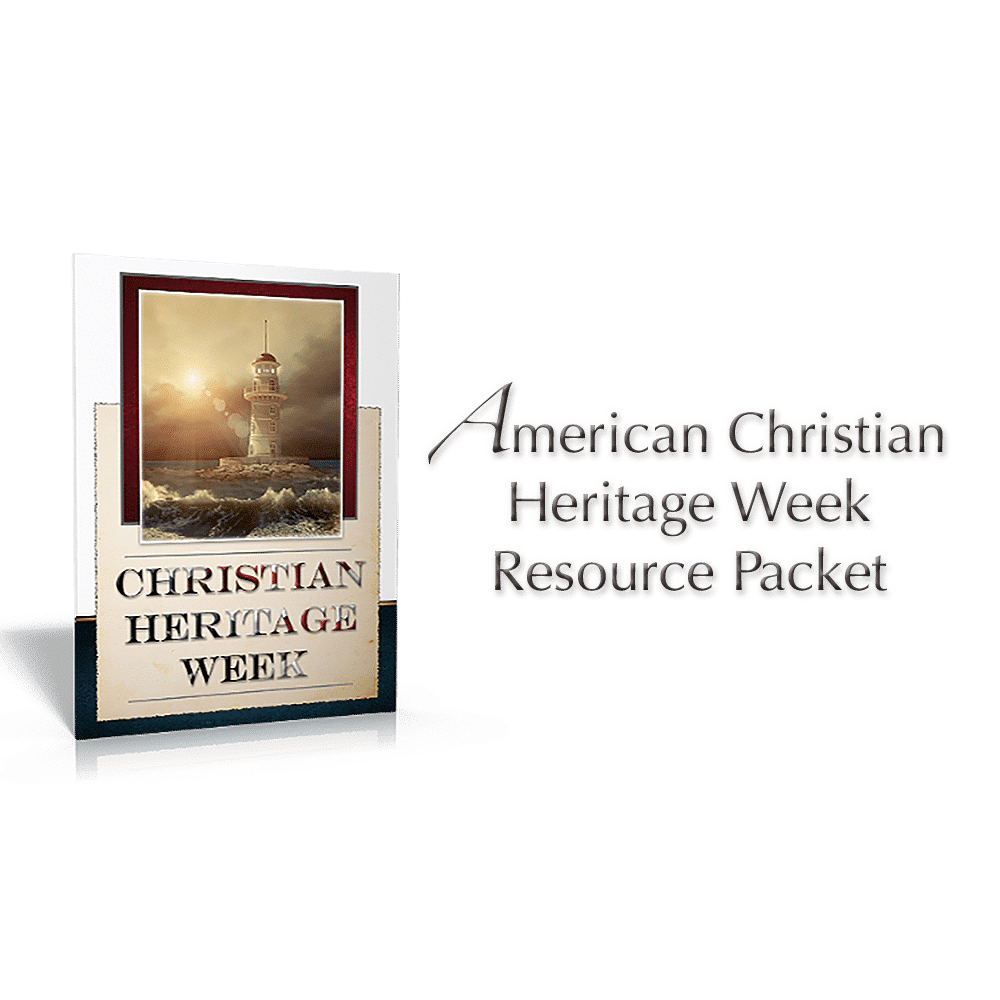Most Americans are unaware of the rich Christian origin of their nation that is contained in original documents. One of the ways America's Founding Fathers expressed their Christian faith was through a series of sixteen spiritual proclamations issued by Congress over a period of nearly a decade. Congress developed a pattern of issuing humiliation, fasting, and prayer proclamations in the spring, and in the fall, it issued thanksgiving proclamations from 1775 to 1784. The original proclamation of Congress for October 20, 1779 had been presented below, accompanied by brief anecdotes to illuminate the historical setting. What candid reader of this and other original documents of America's Founding Fathers can believe that they intended to dismiss the influence of Christianity from the government of the nation? October 1779: Congress Proclaims Thanksgiving Day
The subject addressed in this article is discussed at greater length in When Congress Asked America to Fast, Pray, and Give Thanks to God. Christian Heritage Fellowship would be honored to work with individuals, businesses, churches, institutions, or organizations to help communicate the truth concerning the positive influence of the Christian faith by providing bulk pricing: Please contact us here... To purchase a limited quantity of this publication, please click: Purchase here...
Article Contents
Preacher's Son-in-law, President of Congress
The seventh president of Congress, Samuel Huntington, presided over four spiritual proclamations issued by Congress—the most of any single president–serving as president of Congress from September 28, 1779 to July 9, 1781. Samuel Huntington, born in Windham, Connecticut, and though he received only a modest formal education, he was studiously self-taught in Latin and law. In 1758, he was admitted to the bar to practice in Norwich, Connecticut. Elected to various political offices, Huntington became chief justice of the superior court of Connecticut and governor of the state—an office he held for eleven years. In 1761, he married Martha Devotion, daughter of Rev. Ebenezer Devotion. Serving in the Continental Congress from 1775 to 1784, Samuel Huntington became a signer of the Declaration of Independence and gave his hearty support to the Constitutional Convention in 1787 and its work. In fact, he received two of the votes cast by electors for the first president and vice-president in 1789.[1]
Rev. Frederick Muhlenberg in Congress
Of the four members chosen by Congress to compose the thanksgiving proclamation for the fall of 1779, one name emerges because of subsequent prominence. The Journals of Congress for Wednesday, March 3, 1779 made the following record: "Mr. [Frederick A.] Muhlenberg, a delegate for Pennsylvania, attended and produced the credentials of his appointment."[2] Until this time, the name of Rev. Frederick Augustus Muhlenberg had not been recorded in the Journals—though his brother, Rev. John Peter Gabriel Muhlenberg had been mentioned as an officer in the American army—first as a colonel, then as brigadier general.[3] Both men—both ministers of the Gospel—were the sons of Henry Melchior Muhlenberg, "Patriarch of American Lutheranism." Appointed for the first time to help compose the fall congressional thanksgiving proclamation, Frederick Muhlenberg would distinguish himself in the halls of Congress, becoming the first Speaker of the House of Representatives under the Constitution of the United States—and a minister of the Gospel! Only one of the many, many ways Christians helped to birth America as an independent nation, taking their faith with them wherever they went.
Committee Composes Proclamation
The Journals of Congress record the selection of the committee and its proposed proclamation as adopted by Congress in the following two entries:
THURSDAY, OCTOBER 14, 1779
Resolved, That it will be proper to set apart the second Thursday in December next as a day of general thanksgiving in these United States, and that a committee of four be appointed to prepare a recommendation to the said states for this purpose:
The members chosen, Mr. [Jesse] Root, Mr. [Samuel] Holten, Mr. [Frederick A.] Muhlenberg, and Mr. [Gouverneur] Morris.[4]
Less than a week later, the four-member committee submitted its proclamation draft to Congress as a whole. The final proclamation was recorded in the Journals of Congress and sent on to the states for their observance:
WEDNESDAY, OCTOBER 20, 1779
The committee appointed to prepare a recommendation to the several states, for setting apart the second Thursday in December next, as a day of general thanksgiving, brought in a draught, which was agreed to as follows:
Whereas it becomes us humbly to approach the throne of Almighty God, with gratitude and praise for the wonders which his goodness has wrought in conducting our fore-fathers to this western world; for his protection to them and to their posterity amid difficulties and dangers; for raising us, their children, from deep distress to be numbered among the nations of the earth; and for arming the hands of just and mighty princes in our deliverance; and especially for that he hath been pleased to grant us the enjoyment of health, and so to order the revolving seasons, that the earth hath produced her increase in abundance, blessing the labors of the husbandmen, and spreading plenty through the land; that he hath prospered our arms and those of our ally; been a shield to our troops in the hour of danger, pointed their swords to victory and led them in triumph over the bulwarks of the foe; that he hath gone with those who went out into the wilderness against the savage tribes; that he hath stayed the hand of the spoiler, and turned back his meditated destruction; that he hath prospered our commerce, and given success to those who sought the enemy on the face of the deep; and above all, that he hath diffused the glorious light of the gospel, whereby, through the merits of our gracious Redeemer, we may become the heirs of his eternal glory: therefore,
Resolved, That it be recommended to the several states, to appoint Thursday, the 9th of December next, to be a day of public and solemn thanksgiving to Almighty God for his mercies, and of prayer for the continuance of his favor and protection to these United States; to beseech him that he would be graciously pleased to influence our public councils, and bless them with wisdom from on high, with unanimity, firmness, and success; that he would go forth with our hosts and crown our arms with victory; that he would grant to his church the plentiful effusions of divine grace, and pour out his holy spirit on all ministers of the gospel; that he would bless and prosper the means of education, and spread the light of Christian knowledge through the remotest corners of the earth; that he would smile upon the labors of his people and cause the earth to bring forth her fruits in abundance; that we may with gratitude and gladness enjoy them; that he would take into his holy protection our illustrious ally, give him victory over his enemies, and render him signally great, as the father of his people and the protector of the rights of mankind; that he would graciously be pleased to turn the hearts of our enemies, and to dispense the blessings of peace to contending nations; that he would in mercy look down upon us, pardon our sins and receive us into his favor, and finally, that he would establish the independence of these United States upon the basis of religion and virtue, and support and protect them in the enjoyment of peace, liberty and safety as long as the sun and moon shall endure, until time shall be no more.
Done in Congress, the 20th day of October, one thousand seven hundred and seventy-nine, and in the 4th year of the independence of the United States of America.
Samuel Huntington, President.
Attest,
Charles Thomson, Secretary[5]
One reason the irreligious and secularists have been so successful in denying America's Christian heritage is because Americans have taken the word of those who wish to conceal the true historical facts. In the early twentieth century, false historians began to contrive their own narrative of America's origin. But, to the discredit of Christian leaders, they have often taken the word of those spinning the false narratives. Rather than go to the original sources of America's Founding Fathers, Christians have too often accepted the word of these false historians, all because they were regarded as "scholars." Candid Americans reading original sources will come to the realization concerning America's origin—like Supreme Court Justice, David Brewer—that, "This is a Christian nation."
America deserves to know its true heritage.
Please contribute today!
"Anchor Elements" are concepts, events, individuals, terms, or other important components that are featured in this article and which act as reference points for use in other articles throughout our site.
No index entries found.
[1] Dictionary of American biography, s.v. "Huntington, Samuel."
[2] Journals of the Continental Congress, 1774-1789, 34 vols. (Washington, D.C.: Government Printing Office, 1904-1937), 13:269.
[3] Journals of the Continental Congress, 7:52, 141.
[4] Journals of the Continental Congress, 15:1170-1171.
[5] Journals of the Continental Congress, 15:1191-1193.

